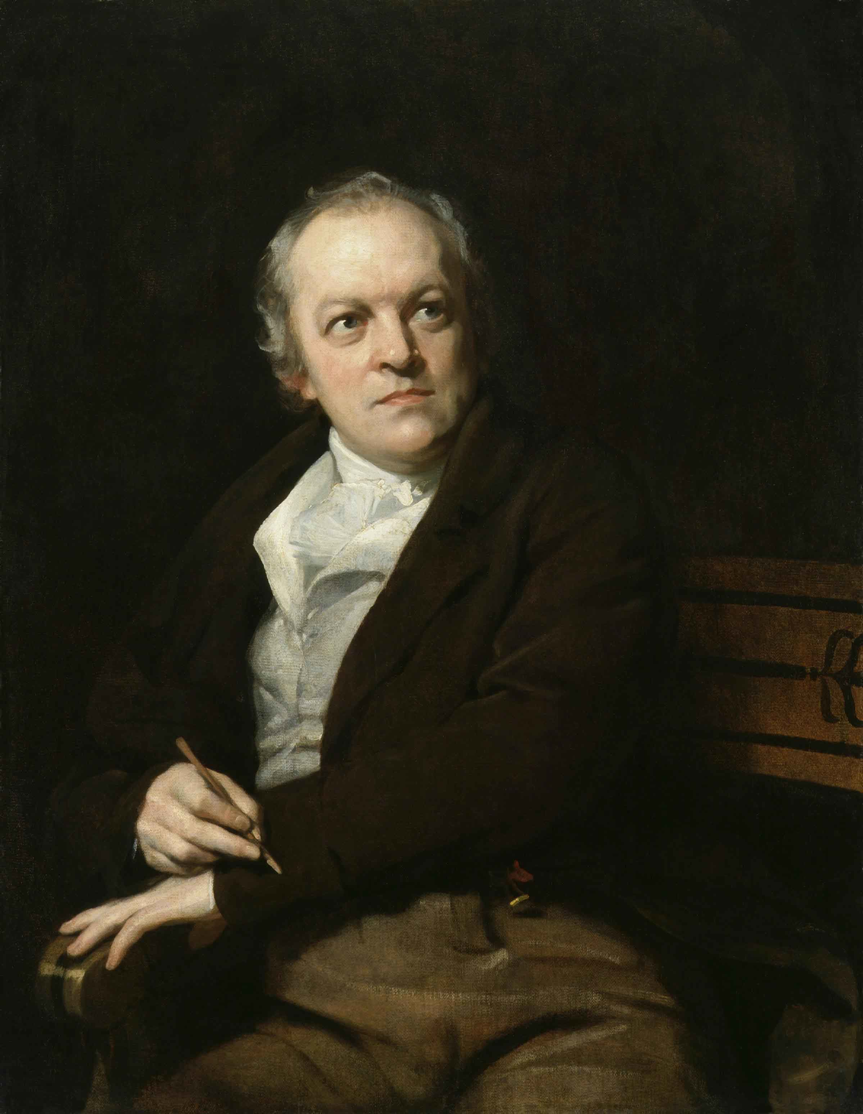Source: 1790s, The Marriage of Heaven and Hell (1790–1793), Proverbs of Hell, Line 22
William Blake Quotes
If You Trap the Moment
1790s, Poems from Blake's Notebook (c. 1791-1792)
“True superstition is ignorant honesty & this is beloved of god and man.”
1780s, Annotations to Lavater (1788)
The Gray Monk, st. 8
1800s, Poems from the Pickering Manuscript (c. 1805)
Source: 1800s, Jerusalem The Emanation of The Giant Albion (c. 1803–1820), Ch. 1, plate 4, lines 18-28 The Words of Jesus to the Giant Albion
The Lamb, st. 1
1780s, Songs of Innocence (1789–1790)
Source: 1800s, Jerusalem The Emanation of The Giant Albion (c. 1803–1820), Ch. 3, plate 55, line 60
Letter to William Hayley (1803-10-07)
1810s
Source: 1800s, Jerusalem The Emanation of The Giant Albion (c. 1803–1820), Ch. 1, plate 27, "To the Jews" 1) lines 9-12
No. 2, The Look of Love
1790s, Poems from Blake's Notebook (c. 1791-1792), Several Questions Answered
“He who shall teach the child to doubt
The rotting grave shall ne'er get out.”
Source: 1800s, Auguries of Innocence (1803), Line 87
My Specter, st. 1
1800s, Poems from Blake's Notebook (c. 1804)
Introduction, st. 1
1790s, Songs of Experience (1794)
Source: 1800s, Jerusalem The Emanation of The Giant Albion (c. 1803–1820), Ch. 4, prefatory poem, plate 77, st. 1
“My Brother starv'd between two Walls,
His Children's Cry my Soul appalls;”
Ibid, stanza 5
1810s, Miscellaneous poems and fragments from the Nonesuch edition
London, st. 2
1790s, Songs of Experience (1794)
To the Public, plate 3 (the last paragraph)
1800s, Jerusalem The Emanation of The Giant Albion (c. 1803–1820)
“This world of imagination is the world of eternity.”
A Vision of the Last Judgment
1810s
“For washed in life's river,
My bright mane forever
Shall shine like the gold
As Iguard o'er the fold.”
Night, st. 6
Songs of Innocence (1789–1790)
Source: 1800s, Jerusalem The Emanation of The Giant Albion (c. 1803–1820), Ch. 3, plate 57
“They suppose that Woman's Love is Sin; in consequence all the Loves & Graces with them are Sin.”
1780s, Annotations to Lavater (1788)
The Ecchoing Green, st. 1
1780s, Songs of Innocence (1789–1790)
Blake's Exhibition and Catalogue of 1809, A Descriptive Catalogue of Pictures: Number V. The Ancient Britons
1800s
“A dog starved at his master's gate
Predicts the ruin of the state.”
Source: 1800s, Auguries of Innocence (1803), Line 9
No. 4, What Is It
1790s, Poems from Blake's Notebook (c. 1791-1792), Several Questions Answered
Introduction, st. 5
1780s, Songs of Innocence (1789–1790)
Source: 1800s, Jerusalem The Emanation of The Giant Albion (c. 1803–1820), Ch. 1, plate 13, line 66 — plate 14, line 1
Prefatory Poem
1800s, Milton (c. 1809)
Source: 1800s, Auguries of Innocence (1803), Line 129
“The Old and New Testaments are the great code of art.”
Oldest source found: "The Harvard Advocate" (Vol. 102–103), p. 268
Attributed
“Pity must join together those whom wrath has torn in sunder”
Source: 1800s, Jerusalem The Emanation of The Giant Albion (c. 1803–1820), Ch. 1, plate 7, lines 62 The Words of Los to his Spectre
“The strongest poison ever known
Came from Caesar's laurel crown.”
Source: 1800s, Auguries of Innocence (1803), Line 97
Night, st. 5
1780s, Songs of Innocence (1789–1790)
Abstinence Sows Sand
1790s, Poems from Blake's Notebook (c. 1791-1792)
Book the First, 24:72
1800s, Milton (c. 1809)
The Human Abstract, st. 1
1790s, Songs of Experience (1794)
Mock On, st. 1
1800s, Poems from Blake's Notebook (c. 1804)
“There can be no Good Will. Will is always Evil; it is persecution to others or selfishness.”
Annotations to Swedenborg (1788)
1780s
Source: 1800s, Auguries of Innocence (1803), Line 107
The Letters Of William Blake https://archive.org/details/lettersofwilliam002199mbp (1956), p. 90
1790s
Source: 1790s, The Marriage of Heaven and Hell (1790–1793), Proverbs of Hell, Lines 8–9
The Little Black Boy, st. 7
1780s, Songs of Innocence (1789–1790)
Introduction, st. 4
1790s, Songs of Experience (1794)
Song (My Silks and Fine Arrays), st. 1
1780s, Poetical Sketches (1783)
Annotations to An Apology for the Bible by R. Watson
1790s
The Angel That Presided
1800s, Poems from Blake's Notebook (c. 1807-1809)
Nurse's Song, st. 1
1780s, Songs of Innocence (1789–1790)
Let the Brothels of Paris, st. 2
1790s, Poems from Blake's Notebook (c. 1791-1792)
